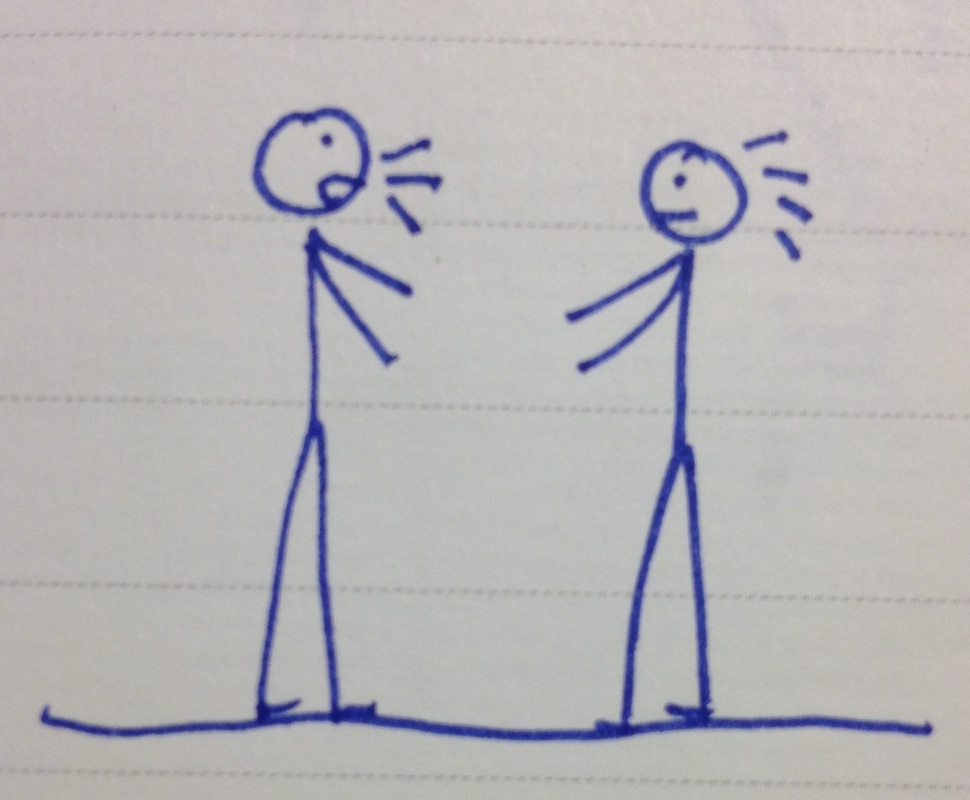Can counselling help me with my depression, stress, loneliness or anxiety?
Most people who find their way to this page are either looking for help, or looking for information on the evidence base for counselling. Both reasons are intertwined; those looking for help also need to know counselling is real, effective and helpful. Whilst we will briefly explore the evidence of the efficacy of counselling, it is worth noting that for those looking for individual help, reassurance or the courage to try something new, statistics are often meaningless to the individual. Whilst all the evidence points towards it being a likely route of help for you, your personal journey and road toward wellbeing will be wonderfully, bizarrely and uniquely yours. So, to quote Polish philosopher Alfred Korzybski, "the map is not the territory"; this article is a guide to the general, not the individual.
|
|
What does the research say?
In 2008, Professor Mick Cooper from the University of Strathclyde did a review of a huge range of scientific research into the effectiveness of counselling and other psychological interventions. His findings were:
- " There is unequivocal evidence that, on average, psychological therapies has a positive effect on people's mental health and wellbeing
- Almost eight out of ten individuals who participate in counselling or psychotherapy improve to a greater extent than the average person who does not participate i therapy
- Overall, around 60 per cent of clients who are diagnosable with a clinical disorder at the commencement of therapy will be diagnosis-free by the end of it
- Talking therapies are generally as effective as pharmacological treatments for psychological distress, and seem to have lower relapes and drop out rates."
A meta-analysis of Humanistic therapies has been shown it to be an effective form of therapy, similar in effectiveness with Cognitive Behavioural Therapy (CBT) and psychodynamic therapy (Elliott, Greenberg et al., 2004)
It is worth noting, as Cooper does (2008), that although the more therapy clients have, the more they tend to improve, the rate of improvement does decrease the longer the therapy goes on. This means there is a point for most people when the improvement will become smaller and smaller, until it is really time to stop therapy once the overall improvement is enough for that person to enjoy their lives as they would wish. This is one reason I do not offer life-long therapy, or therapy without an end goal in sight.
The NHS has also done some research into the efficacy of therapy, which looks at the clients background as an indicator of success:
"Research shows that talking therapies work just as well whether you’re old or young, male or female, white or black, gay or straight, rich or poor. Your educational background makes no difference either."
Many other studies have shown that counselling helps. To look at the review the NHS has done, click here:
It is worth noting, as Cooper does (2008), that although the more therapy clients have, the more they tend to improve, the rate of improvement does decrease the longer the therapy goes on. This means there is a point for most people when the improvement will become smaller and smaller, until it is really time to stop therapy once the overall improvement is enough for that person to enjoy their lives as they would wish. This is one reason I do not offer life-long therapy, or therapy without an end goal in sight.
The NHS has also done some research into the efficacy of therapy, which looks at the clients background as an indicator of success:
"Research shows that talking therapies work just as well whether you’re old or young, male or female, white or black, gay or straight, rich or poor. Your educational background makes no difference either."
Many other studies have shown that counselling helps. To look at the review the NHS has done, click here:
It is also worth reading individuals' experiences of counselling, in case they mean something to you.Read about a student's candid description of her counselling experience here. For more personal stories of how counselling has helped, click here.
What can counselling help with?
Counselling can help with many issues, including:
- Relationship problems
- Depression
- Bullying
- Stress - at work, school, home or financial
- Self-esteem and assertiveness
- Bereavement, including friends, colleagues, family members, pets and partners
- Abuse, current or past abuse, physical, emotional, sexual or neglect
- Unhappiness or dissatisfaction with life, including boredom or numbness
- Addiction
- Anxiety
- Life stages, such as becoming an adult, getting married, having children, losing your parents
- Sexual problems
- Confusion
- Anger
- Violent behavior
- Dealing with an illness or physical change such as cancer, loss of limb, burns, menopause
- Feeling 'out of place', lost or not having a purpose
- Redundancy
- Phobias and fears
- Conflict
- Trauma
The most important thing to remember about counselling is that across all studies of all the different types, it is the relationship with the counsellor that is one of the most important factors in the therapeutic work. This means that choosing a qualified, non-judgmental, empathetic counsellor you can trust is very important. This will be the topic of a future article.
References
Cooper, M. (2008). Essential Research Findings in Counselling and Psychotherapy. London: Sage
Elliot, R., Greenberg, L.S. & Lietaer, G. (2004). Research on experiential therapies in Lambert, M.J. (ed.) Bergin and Garfield's Handbook of Psychotherapy and Behaviour Changes (5e). Chicago; John Wiley & Sons
Cooper, M. (2008). Essential Research Findings in Counselling and Psychotherapy. London: Sage
Elliot, R., Greenberg, L.S. & Lietaer, G. (2004). Research on experiential therapies in Lambert, M.J. (ed.) Bergin and Garfield's Handbook of Psychotherapy and Behaviour Changes (5e). Chicago; John Wiley & Sons







